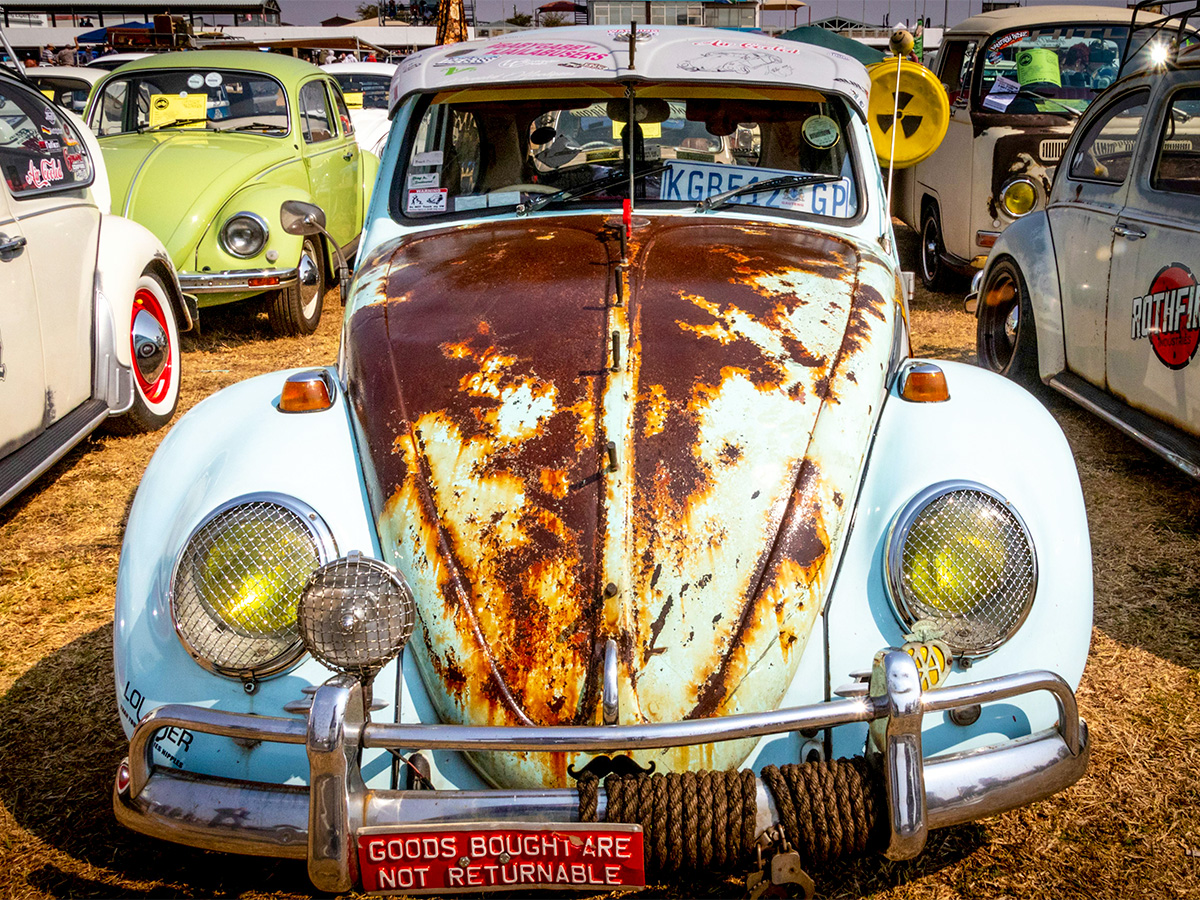Throughout my life, I’ve lived in New York, Georgia, Connecticut, Florida, and Maine. I’ve never really concerned myself with my cars rusting out until I arrived in Maine. In New York and Connecticut, yes, the winter roads are sanded and salted, but I’m not sure I noticed any discernable difference between when I purchased a vehicle and when I sold it, rust-wise. Nothing ever seemed to happen in a bad way. That’s not to mean that cars don’t rust in those states because they certainly do. I have a long history of family members needing to repair holes in their floorboards – you know the type; you’re a little kid driving down the road with your father in his old truck. You can see the blacktop and painted street lines pass you by underneath your feet. Yeah, those good ol’ days.
I think Maine uses something different on the roads than what the other states use. Whatever’s utilized up here to melt the snow and ice also melts the steel of a vehicle. It’s strong. It eats away at pretty much anything and it does some real damage. And unfortunately, if a person doesn’t keep a close eye on the undercarriage of their vehicle, it may just fall apart. Honestly, you really truly (and regularly) need to keep on top of either cleaning the under areas of your car during the winter, undercoating, or both. Preferably both. And while you can’t stop rust completely because some is bound to find its way through, you can completely and utterly slow it down – tremendously.
To illustrate my points, I’ll tell you two quick stories. If you plan on moving to Maine, or northern New England for that matter, please take note. You’ll only encounter disappointment if you don’t.
Laura and I own two cars. One is a BMW 328xi. The other is a Ford F250. They’re both in excellent condition and both have relatively low miles when compared to other vehicles on the road. We really only drive them when necessary, which keeps them out of trouble.
Earlier this summer, I noticed a small puddle on the garage floor, underneath the BMW. At first, I didn’t really mind. I thought it was no big deal. After a while though, I became concerned. As the days passed by, the puddle grew. And grew. And grew. It grew to such an extent that I thought an inspection was warranted. I jacked the car off the ground, looked underneath, and discovered the the leak stemmed from the transmission pan. The pan was covered with rust. Nothing else was rusty in the vicinity of the pan – just the pan. To make a long story short, I ordered the necessary parts and changed the pan, filter, and fluid. The fluid and filter needed a change anyway, but I could have done without having to wait a month for a new pan to arrive from China. I was somewhat stressed during the entire endeavor. Road salt caused the pan to rust and ultimately leak. It was something that could have been avoided. And what’s interesting is that while I was procrastinating the inspection of the vehicle, I lost three quarts of transmission fluid to the garage floor. The transmission only holds eight, so I cut that one rather close.
This year, I brought my truck into a mechanic for a yearly safety inspection. As I arrived at his garage, I noticed smoke coming from the driver’s side front wheel hub. Come to find out, the brake caliper was sticking due to disuse of the vehicle. As I stood in disbelief, the mechanic explained that he sees the type of thing I was experiencing all the time. Year after year, people find their truck calipers sticking because the parts rust from sitting either outside or in their garages. Because the Ford F250 is so horrible in regards to fuel efficiency, most owners only drive them when necessary, e.i., to pull boats or plow snow. In the meantime, the trucks sit and the brake systems rust up. In my case, I hadn’t driven the truck earnestly in years. I had no reason to. So also in my case, upon inspection, I discovered that both front calipers had torn piston boots and one rear brake had the pads actually rusted to the brake caliper bracket. They wouldn’t move at all. Mind you, this is all being discovered at the same time as I was fixing the BMW. I was down two vehicles simultaneously.
To make another long story short, I bought replacement calipers and pads for all four wheels and did what I had to do. Now, everything is brand new. There’s no other rust on the truck and since I still don’t drive it much, I slathered Fluid Film over every single part of exposed metal I could find. Now, the metal is protected from rust, but I’ll still take the truck for a monthly drive, just in case.
I suppose I’m writing this post for a few different reasons. First, I found it rewarding to get the ordeal off my chest. I had to tell someone and that someone is you. Second, I thought a quick PSA was in order. Again, if you live in Maine or would like to live in Maine, take heed of my words. Your vehicle will rust away if you don’t protect it. Just because you can’t see it or feel it at the moment, it doesn’t mean it’s not happening. It’s like cancer and termites – both do their damage behind your back and unfortunately, under your nose.
